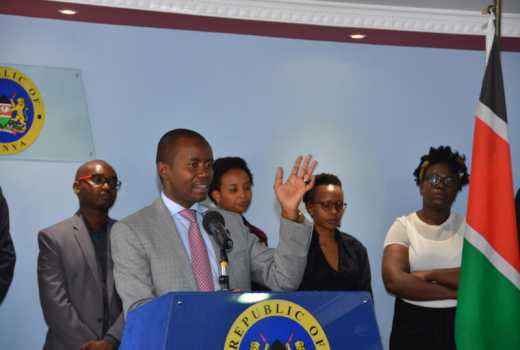×
The Standard e-Paper
Fearless, Trusted News

The Government is working on a blockchain database aimed at weeding out fake title deeds from the land registry.
Known as the single source of truth (SSOT), the database will be the primary reference for all land transactions.